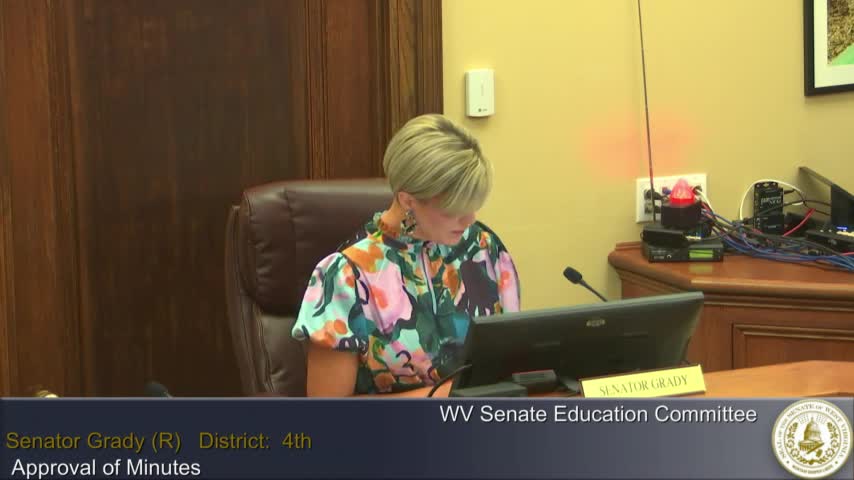Senate committee advances farm equipment repair pilot, narrows manufacturer obligations
Get AI-powered insights, summaries, and transcripts
Subscribe
Summary
A Senate committee approved a committee substitute for Senate Bill 737 to create a West Virginia Farm Equipment Repair Pilot Program and directed the commissioner of agriculture to work with career and technical centers and local businesses to set up training and repair capacity.
A Senate committee on Wednesday approved a committee substitute for Senate Bill 737 that would create the West Virginia Farm Equipment Repair Pilot Program and direct the commissioner of agriculture to work with career and technical education centers and local businesses to provide training and local repair capacity for farm equipment.
Counsel Hank, addressing the committee, summarized the substitute: "This proposed committee substitute for this bill requires the commissioner of agriculture, along with career and technical centers and instructors, work with farm equipment manufacturers or dealers to establish the West Virginia Farm Equipment Repair Pilot Program for the purpose of ensuring that career technical instructors are provided with the educational tools and technology required to make localized repairs to farm equipment and train students for future jobs in the program." Hank also said the bill requires the commissioner to propose rules and includes items that must appear in the plan of implementation.
The bill drew detailed questions about whether participation would be mandatory for CTE centers or businesses and how the pilot would be scoped geographically and by duration. Counsel said the draft language uses "shall," which appears to require the commissioner and named partners to act; several senators worried that phrasing could obligate schools or manufacturers to take part. Deputy Superintendent Sonia White, testifying about CTE practice, explained the role of local CTE advisory councils in shaping programs and said, "that council's what decides," describing how local industry leaders and educators identify workforce needs and make recommendations to start pilots.
Lawmakers pressed for clarity about industry obligations and proprietary information. Senators noted school-level differences in student readiness for advanced equipment training and suggested higher-education or community college programs could be more appropriate for specialized, software-driven diagnostics. In response, counsel and members proposed and adopted conceptual amendments to change many of the bill's "shall" requirements to "may," to make participation elective for businesses and local programs, to limit the number of pilot projects (the adopted language sets a cap of five pilots), and to expand where pilots may be based so that comprehensive high schools with existing agricultural programs as well as CTE centers can participate.
After debate and the adoption of the amendments, the committee agreed to the committee substitute as amended. The vice chair moved that the committee substitute for Senate Bill 737, as amended, be reported to the full Senate with the recommendation that it do pass but first be referred to the Committee on Finance; the committee adopted the motion by voice vote.
The bill places key implementation decisions — including exact pilot locations, funding arrangements and the scope of any proprietary software access — with the Commissioner of Agriculture and with local education advisory councils, pending rulemaking by the commissioner.
What happens next: the committee reported the substitute to the full Senate with a recommendation that it pass and with an initial referral to the finance committee.
